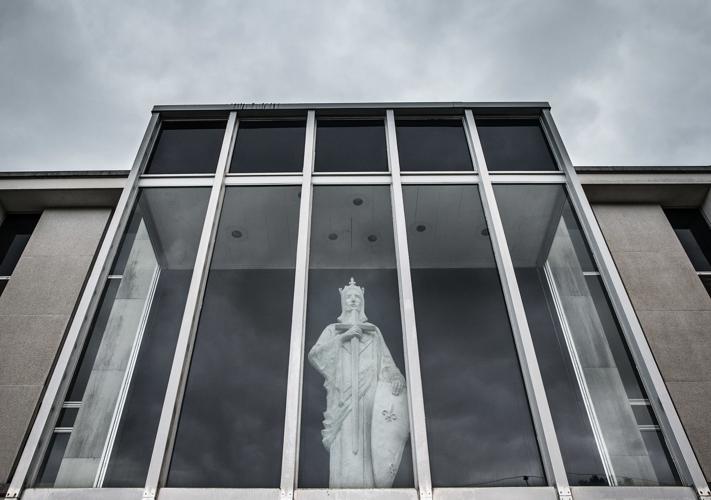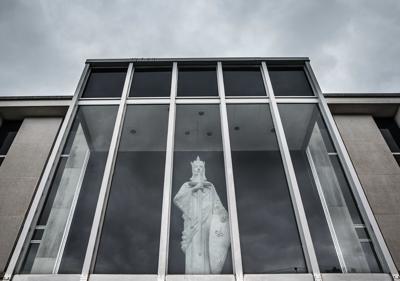Dozens of attorneys for the Archdiocese of New Orleans, its parishes, charities, lenders and hundreds of survivors of clergy sex abuse will meet face-to-face this week for a three-day, high-stakes mediation aimed at bringing an end to the long-running bankruptcy case.
The settlement talks, which begin Tuesday at the Central Business District offices of archdiocese law firm Jones Walker, come as the fifth anniversary approaches of Archbishop Gregory Aymond's move to place the local Roman Catholic Church under federal bankruptcy protection.
The May 1 milestone will make it one of the costliest and longest running of the 40 Catholic Church bankruptcies filed around the country over the past two decades.
In recent court hearings, U.S. Bankruptcy Judge Meredith Grabill has suggested that if the two sides cannot come together soon, she will consider dismissing the case — a move that would open the nation’s second-oldest diocese to a flurry of lawsuits detailing decades-old allegations of child rape and molestation.
The talks will aim to bridge the gap between what the church is offering to pay survivors as financial compensation for the abuse they suffered as children and how much they are willing to accept, according to comments both sides have made in court in recent weeks.
Attorneys for both sides have indicated during the hearings they have made some progress closing what is, effectively, a $150 million gap.
But even if the parties agree on a dollar figure in the coming days, the case won’t necessarily be resolved any time soon, at least if the experience of other dioceses is any indication.
That’s because church insurance companies must agree to whatever is ultimately negotiated, and the local diocese’s four insurers are not a part of this week’s settlement talks. A separate mediation with them is scheduled for later this month.
In church bankruptcies in Camden, New Jersey and Rochester, New York, both filed around the same time as the New Orleans case, insurance companies have challenged settlements agree to by survivors, the church and the courts.
“We’ve seen in a variety of situations in other dioceses where the creditors’ committee and the diocese have come to an agreement with none of the insurers or some of the insurers,” said attorney Molly Burke with Minneapolis-based Jeff Anderson & Associates, which has represented abuse survivors in cases around the country. “Sometimes, this can put pressure on other insurers or parties to reach a settlement, but it really is a case-by-case scenario."
In a prepared statement, Aymond said the bankruptcy case has “taken too long and been too costly and caused additional angst for the survivors, many who have already suffered for decades as a result of their abuse.

Archbishop Gregory Aymond leads Ash Wednesday services at St. Louis Cathedral in New Orleans on Wednesday, March 5, 2025. (Photo by Chris Granger | The Times-Picayune | NOLA.com)
“I have instructed our team to prioritize bringing the bankruptcy proceedings to a just and equitable conclusion for the good of all, especially the survivors,” he said.
Attorneys for abuse survivors did not respond to requests seeking comment.
Closing the gap
The mediation is the first in this case to take place in-person and will be led by Judge Christopher Sontchi, a former Chief Justice for the U.S. Bankruptcy Court for the District of Delaware and an international mediation expert appointed by Grabill earlier this year.
U.S. Bankruptcy Judge Gregg Zive, who has been overseeing settlement talks in the case since 2021, is also expected to participate.
Last fall, the church filed a draft reorganization plan offering to pay survivors $62 million, or about $113,000 each, not including money they could potentially recover by suing church insurers.
Survivors are asking for nearly $1 billion, or about $1.8 million each, though a competing plan they filed envisions $777 million of that amount coming from insurers — money the insurance companies have not agreed to pay.

Archbishop Gregory Aymond works in his office, located inside his residence located inside the Archdiocese of New Orleans.
Without the upfront contribution from insurers, the survivors’ plan amounts to $215 million, a number much closer to the church’s $62 million offer.
But because mediation talks are private and the case is under a gag order, it’s hard to say how much progress has been made in recent months.
Another issue that attorneys in the case hope to work out this week concerns the process that will be used for survivors to approve or decline a settlement.
The bankruptcy settlement could require that claimants "opt in" by affirmatively agreeing to whatever agreement is reached, or it could automatically include claimants as part of the settlement unless they affirmatively "opt out."
The decision, though technical, could have implications for church parishes, schools and other affiliates as they try to determine their potential exposure to lawsuits outside of the bankruptcy process.
Cautionary tale
In other church bankruptcy cases, insurance companies who weren't party to negotiations between the church and abuse survivors have thwarted settlements.
Last year, the Diocese of Camden, New Jersey settled its nearly four-year-old bankruptcy case with abuse survivors for $87.5 million. But insurers sued to block the plan and in January were granted a reprieve by the U.S. Court of Appeals for the Third Circuit.
The bankruptcy case of the Diocese of Rochester, New York, meanwhile, filed in the fall of 2019, resulted in a $125 million settlement with three of its four insurers. But the fourth company, Continental Insurance Co., is holding up the planned settlement for the diocese's more than 550 abuse survivors, court documents show.
An attorney for one of the insurance companies that represents the New Orleans archdiocese, U.S. Fire and Casualty, said in a statement Monday that insurers need to be included in negotiations.
“You can’t reach a global consensus on a plan of reorganization by excluding parties in interest,” said attorney Tancred Schiavoni.




